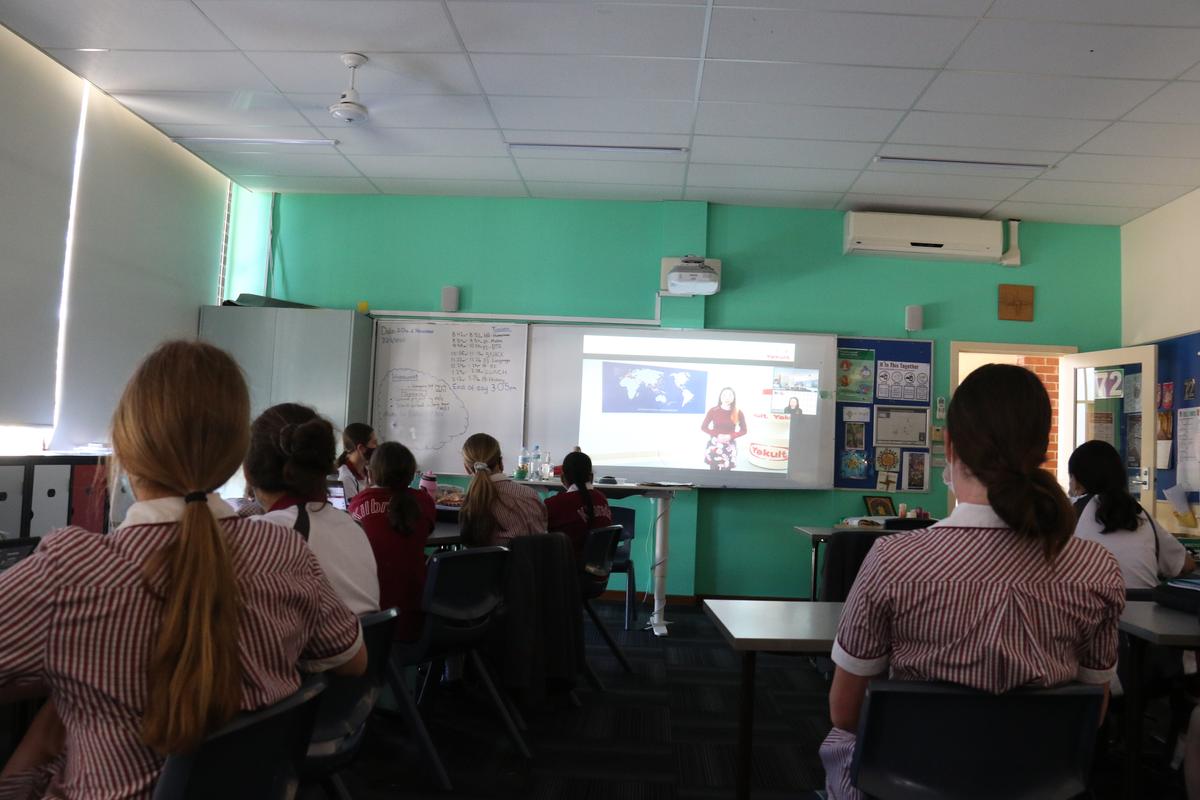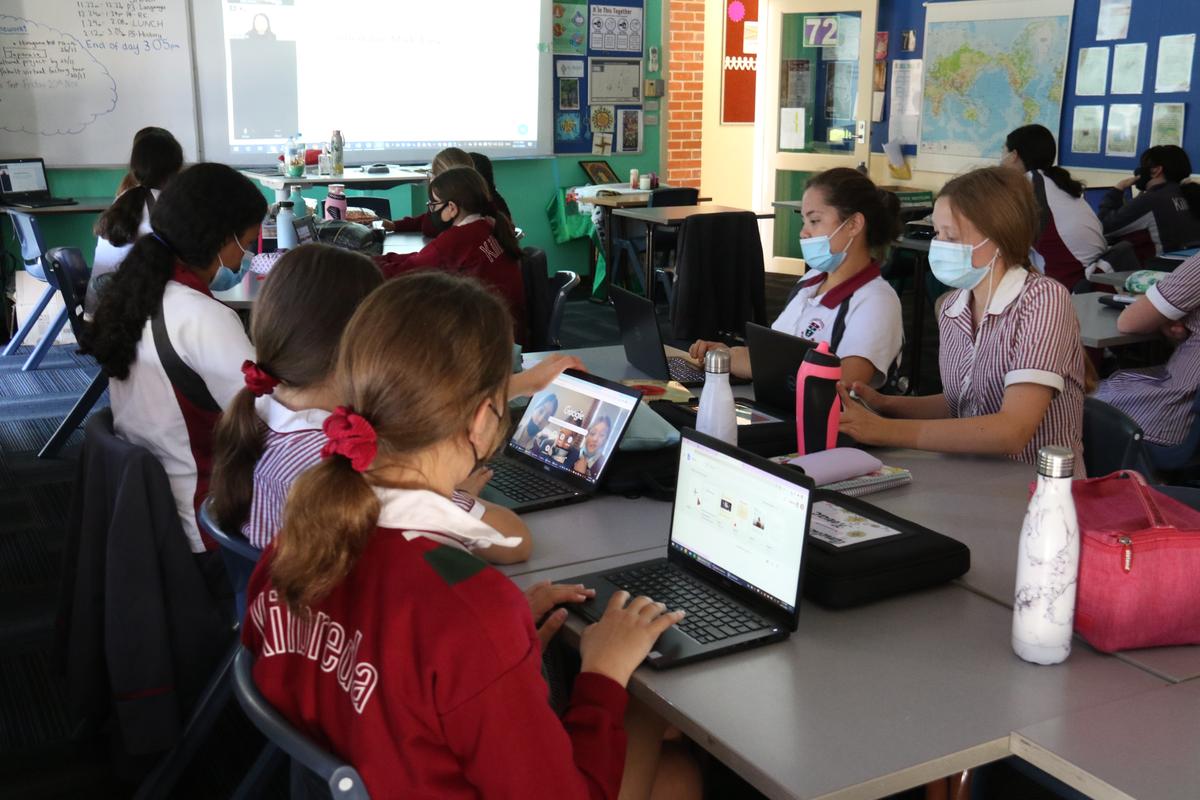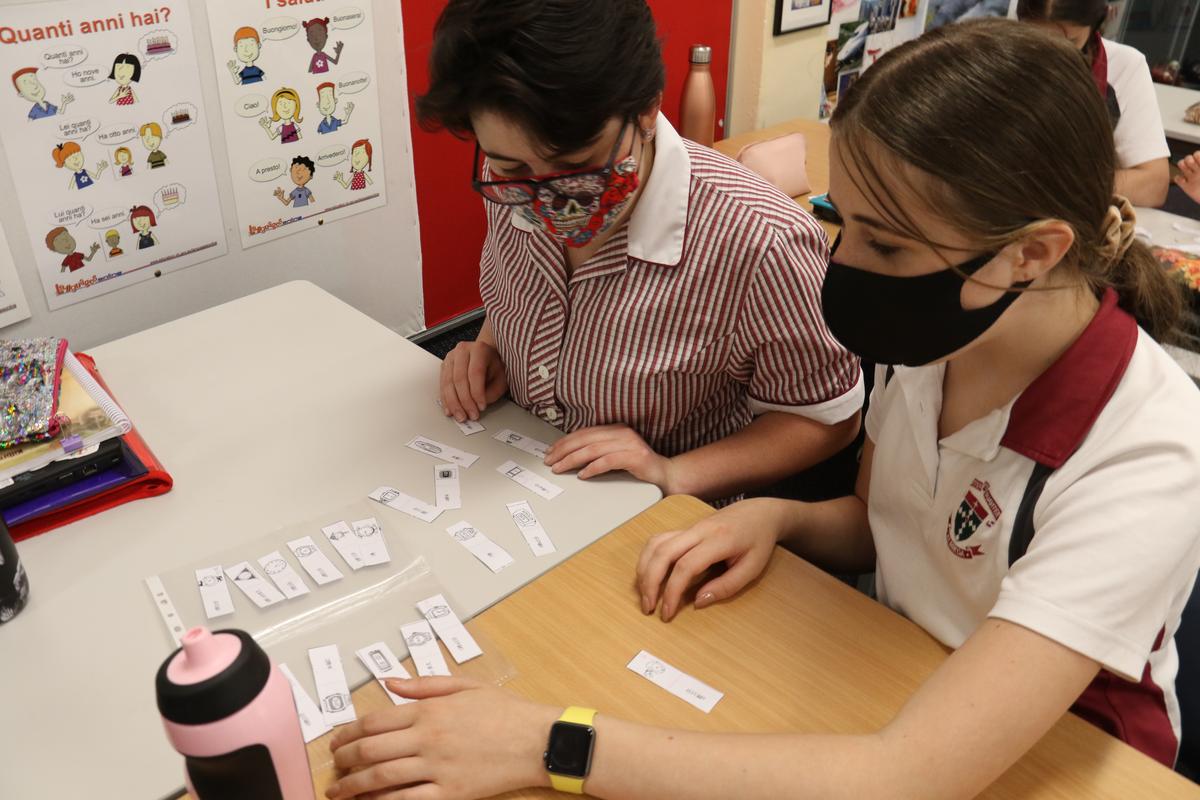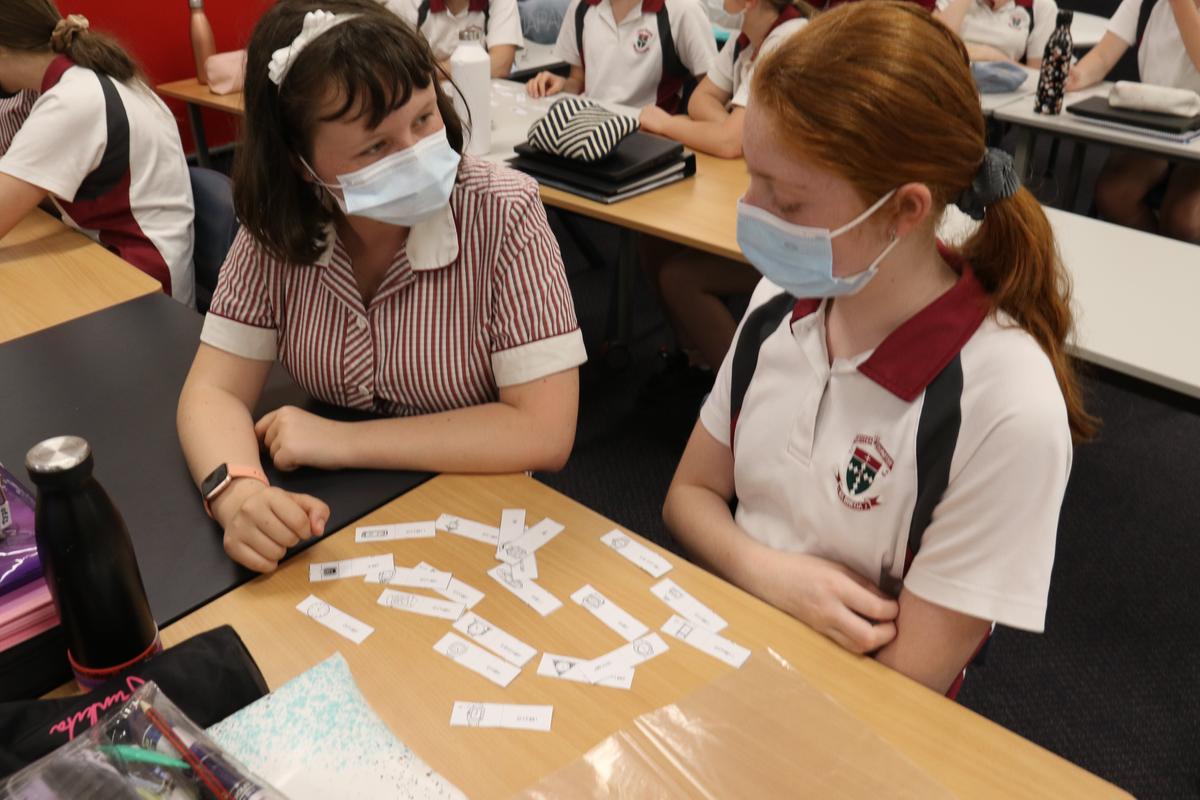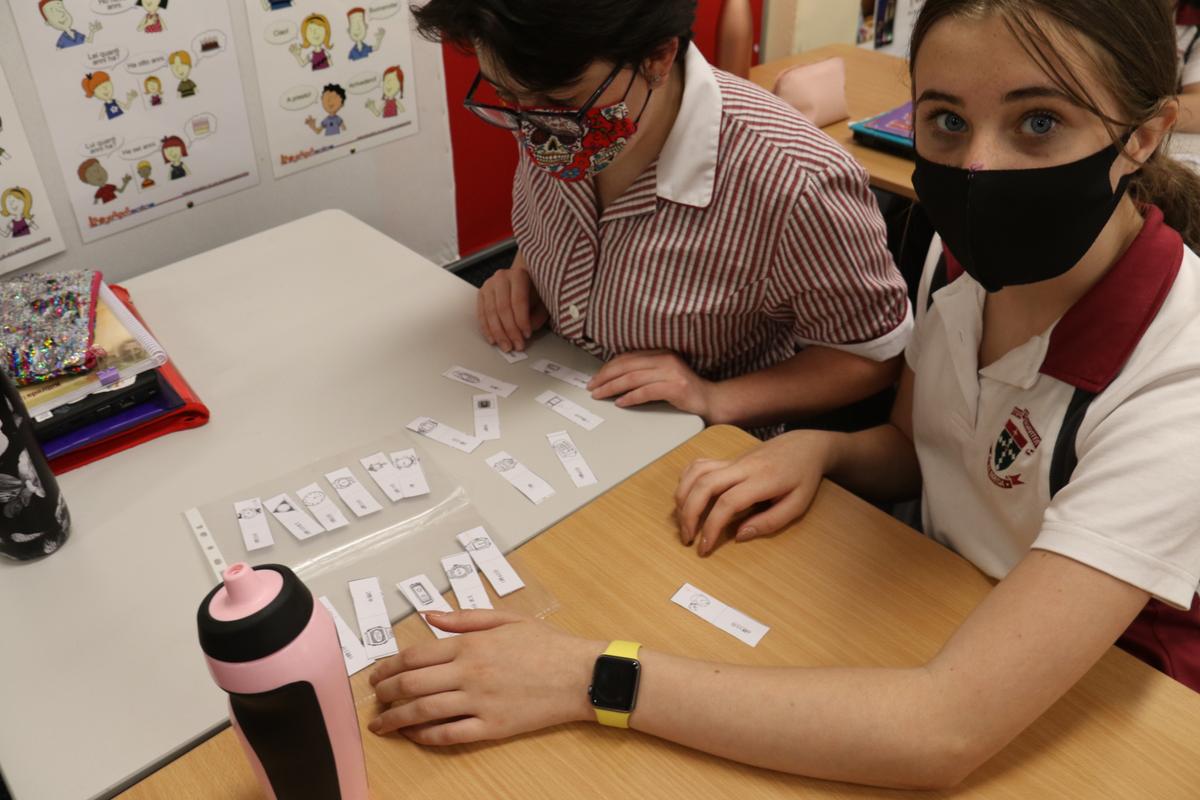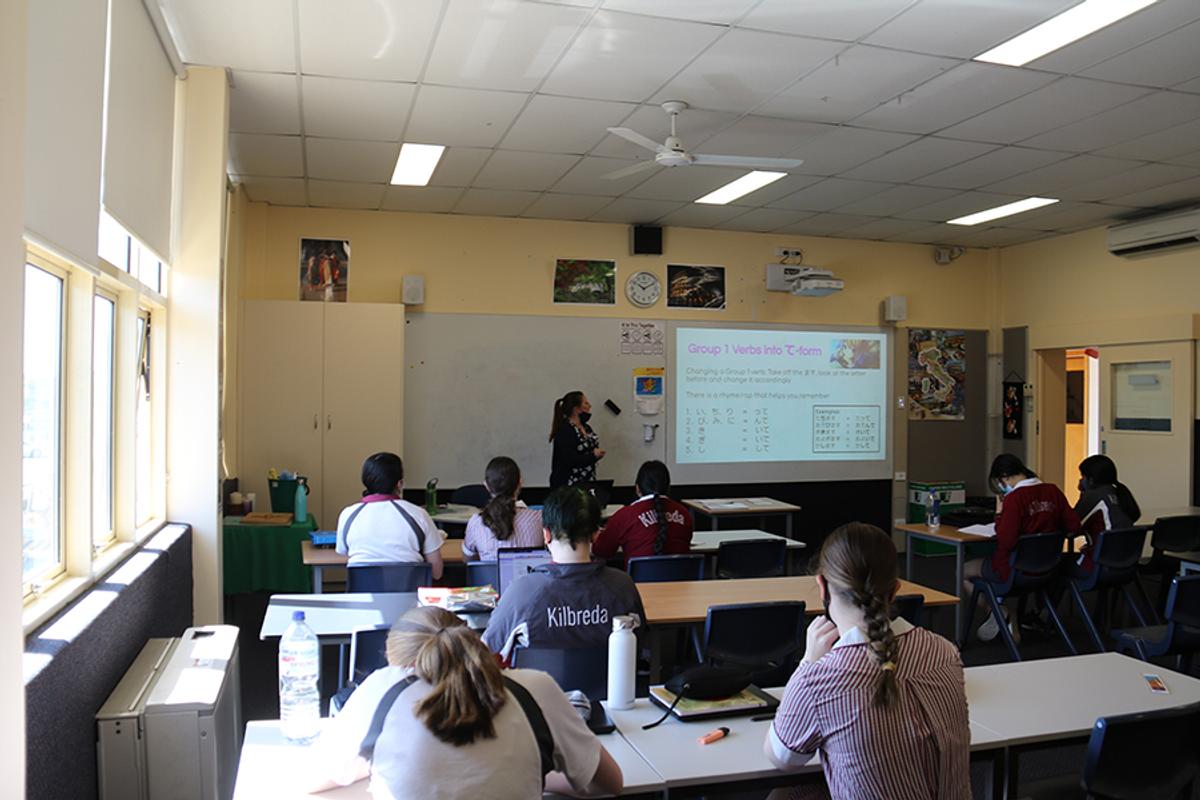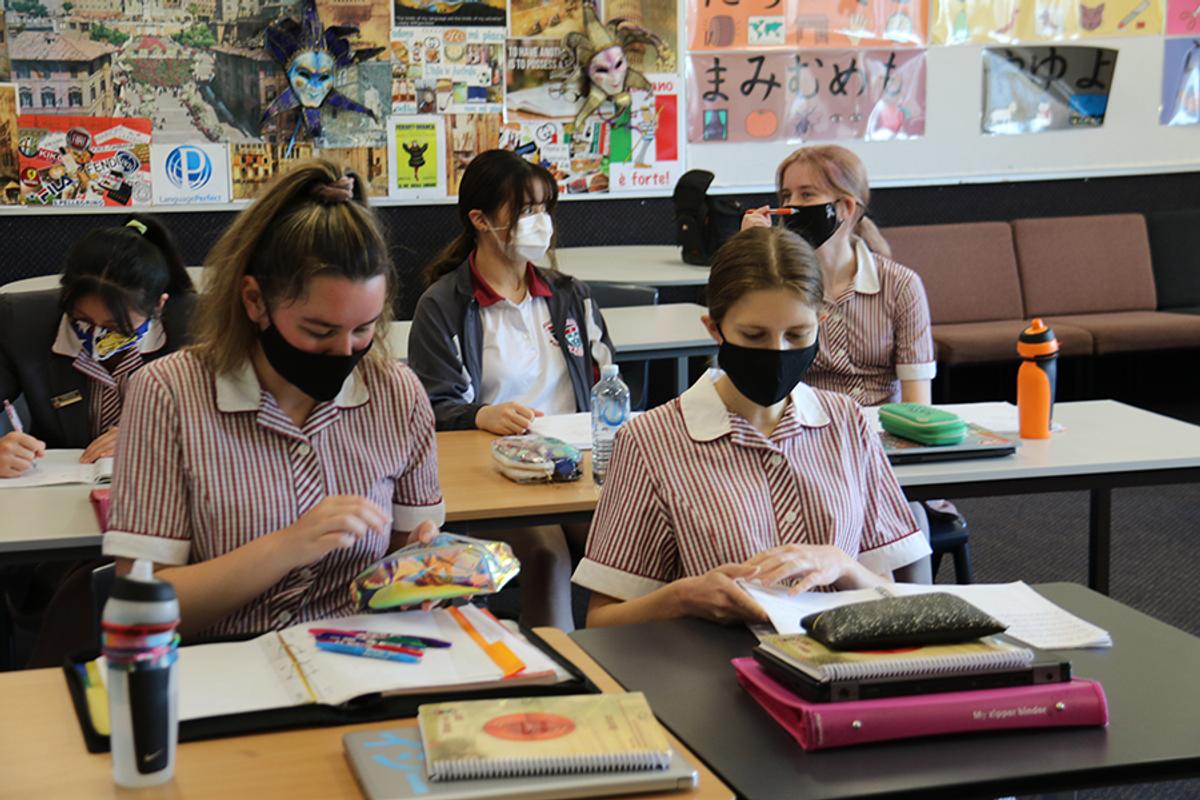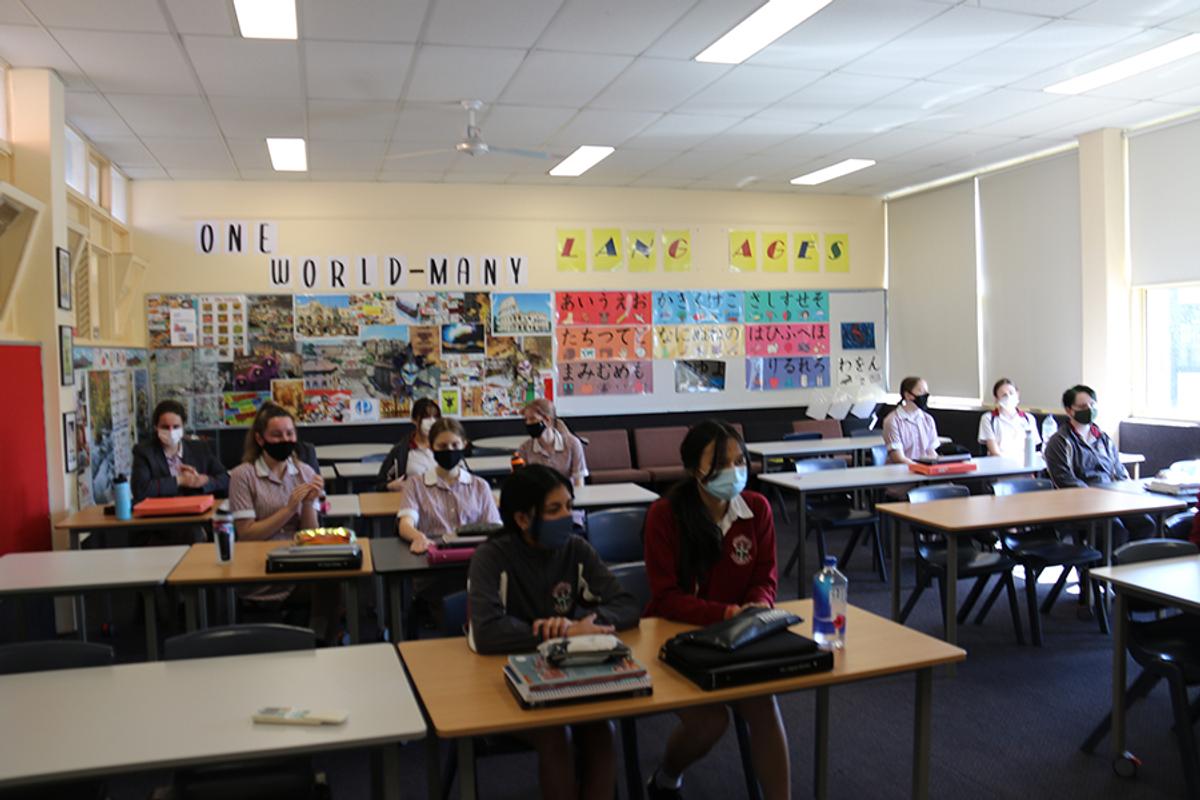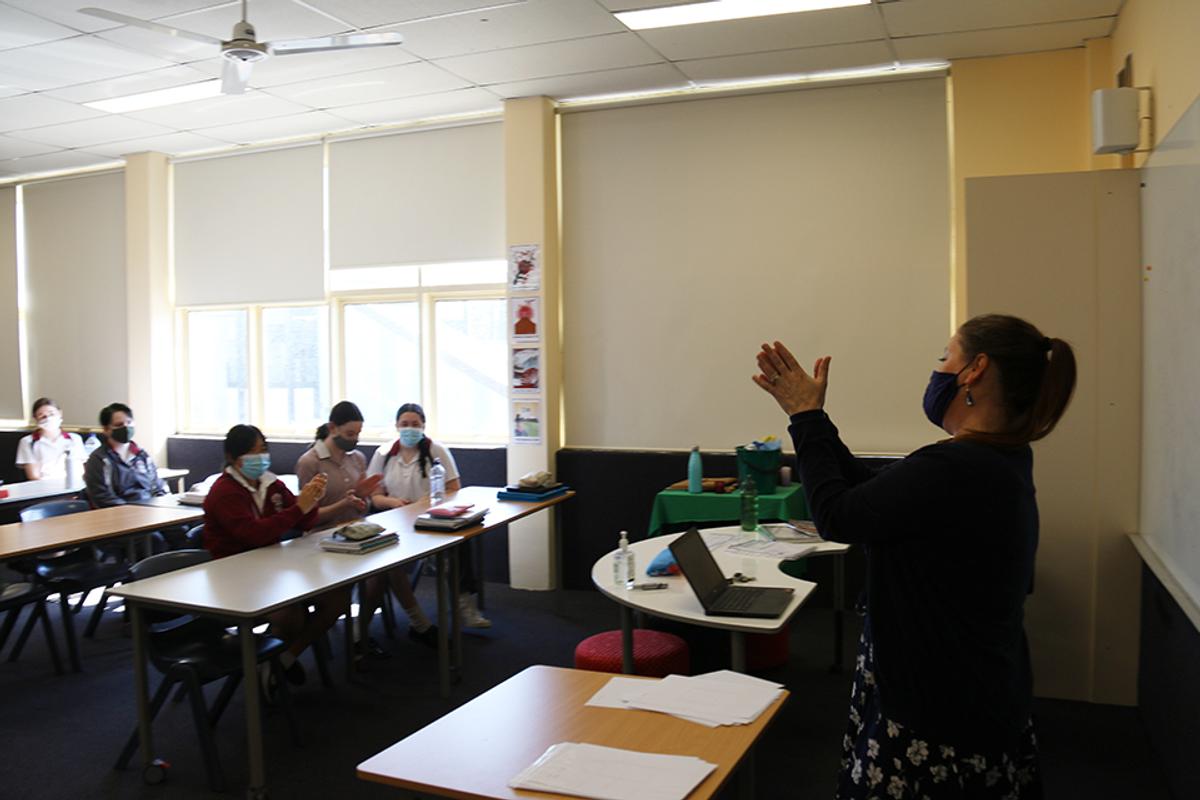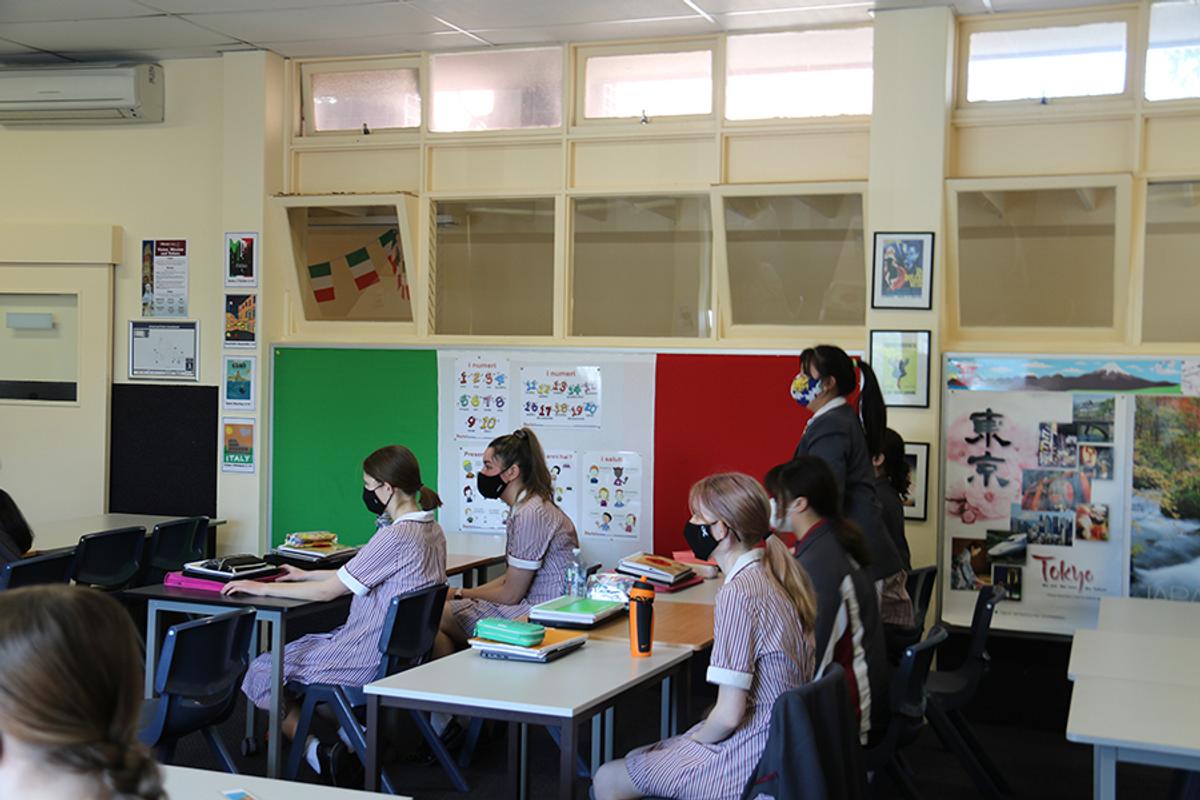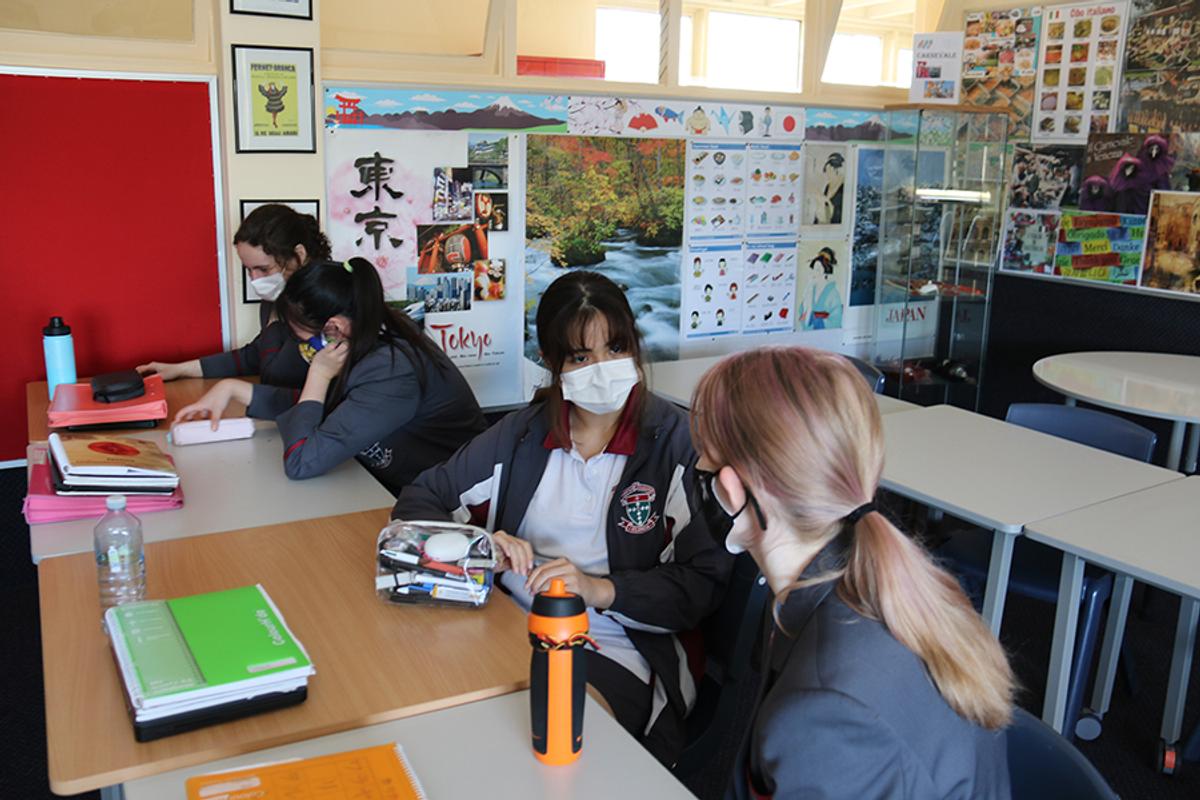Languages
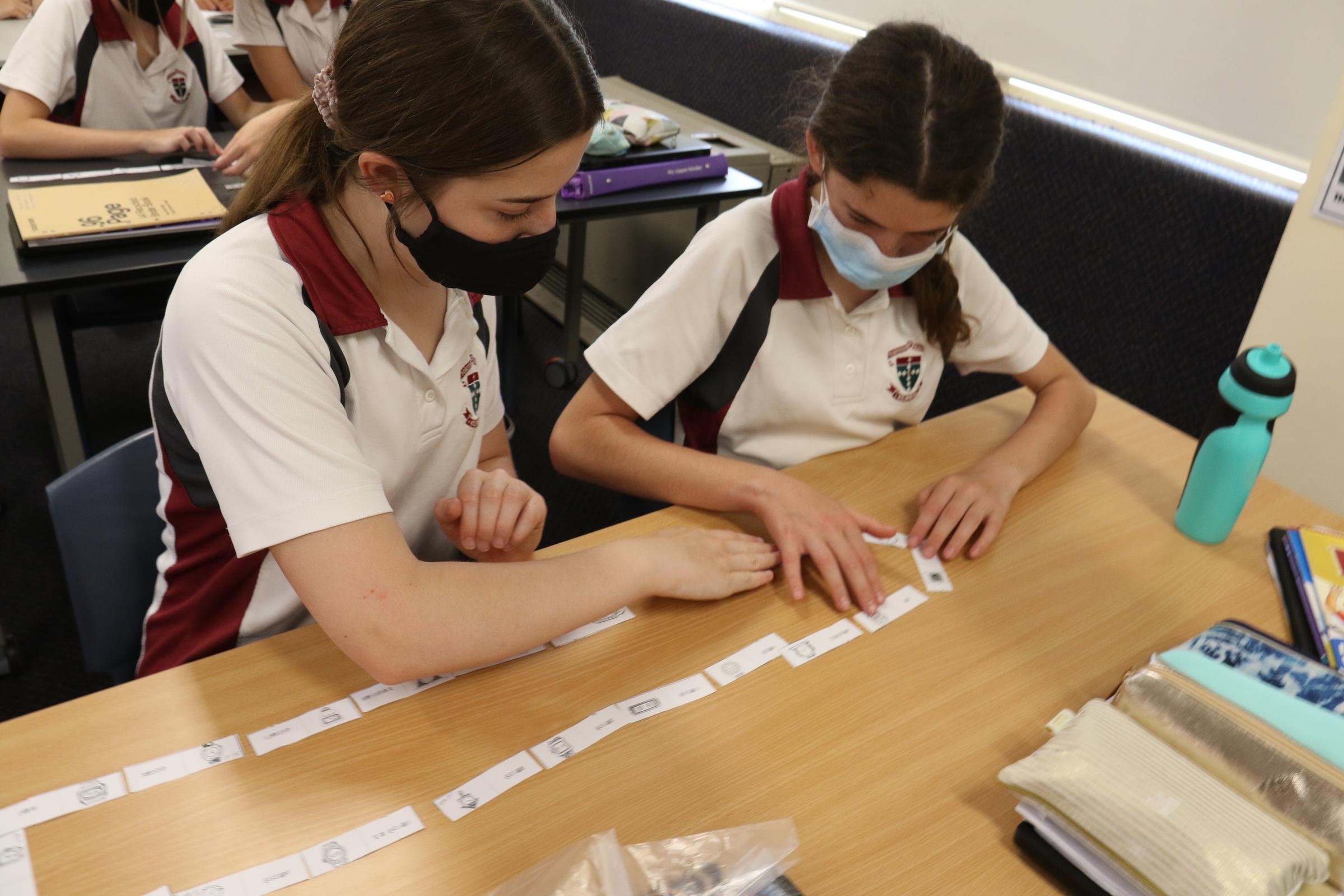
Year 7 Japanese - Yakult Virtual Factory Tour
On 20 November, Connie from the Yakult facility in Dandenong gave us a virtual tour and shared some information about Yakult. Yakult is a type of sweetened milk that originated in Japan. It has been made with good bacteria to build immunity to digestive disorders and reduce the risk of infections. The creator of Yakult is Dr Minoru Shirota. He created this drink to benefit people and believed it resulted in a long healthy life. Yakult has very natural ingredients and is free from artificial colours, flavours and preservatives.
Learning about Yakult was very intriguing and interesting. Being able to see the virtual factory was very cool and it felt like we were actually there. Connie provided so much information and a lot of examples and videos. As a class we are all very grateful we got to experience this amazing tour.
Amelie Kovac
Year 7
Year 7 - Remote Learning
Throughout this semester, there have been many things that interfere with the way we learn. There are a lot of factors that have created differences between learning remotely and learning onsite at school.
During remote learning, at times things seemed more difficult to understand. When learning onsite it was easier to understand what work we were set since you don't need WiFi to join the class. Books were also a problem that came up throughout remote learning. However, things have gotten better due to onsite learning.
Expression was something that was very important. Through a computer screen, you don't get to see the expression that is supposed to be used. Onsite, we are shown hand signals that help with knowing exactly how much articulation is needed.
Overall, based on our experience, it is probably fair to say that onsite learning is easier than learning remotely.
Rhianna Ablis. Nikita McFayden
and Abby Young
Year 7
Year 8 Japanese
After months of remote learning, we are all finally back at school. What can I say, it's a relief to finally be able to see and learn with our peers and teachers again. Remote learning may have been okay, but we all missed having lunch with our friends at the Canteen and being able to be taught around our peers by our teachers . It was not only tough on us students but on all of the staff as well. Being back at the College finally, regardless of the masks and social distancing, feels alot better!
Seeing your teachers and peers faces on screens is never a proper replacement for the real thing. After months of hard work and following all the rules, lockdown was finished and the relief of being able to socialise with others was finally here!
Recently, we went into the Language Hub and played Dominos, which helped us learn the time in Japanese. We are so lucky to be able to learn other languages at Kilbreda! We also got to play a game called Quizlet, it was all about our daily routine. We learned words like 'yummy', 'breakfast' and 'snack'. We are looking forward to learning more Japanese onsite in the future!
Year 10 Japanese
It was with great excitement that I entered our Year 10 Japanese classroom on that first sunny day back in February. I knew looking at the class list that it was going to be a special group of language students. And while 2020 may not have been quite the year we all wanted, this group of students never wavered in their enthusiastic approach to learning, whether live in the classroom or remotely through Microsoft Teams. I am so proud of each of them.
To finish the year I asked them three questions 1 - "What made you choose Japanese in Year 10?"
2 -"What is the most enjoyable thing that you have learnt this year?"
3 - "What is your favourite thing about studying Japanese?"
Below are some of their responses.
Adrienne Donoghue
Japanese Teacher
I chose to continue with Japanese in Year 10 because I have always been interested in learning other countries' languages. By learning Japanese I have the opportunity to learn a whole language and culture that is completely different to my own.
The most enjoyable thing that I have learnt this year in Japanese are all the new Kanji. We had learnt Kanji for many things such as weather, colours, people and body parts! My favourite thing about studying Japanese are the games we play in class. Not only are they really fun, but they also help us to remember new words or Kanji that we have learnt in class.
Georgina Heath
Year 10
I do Japanese because I love studying it, it's a lot of fun and I love learning about a different culture. This year I really enjoyed learning new Kanji and we've also learnt a variety of new sentence patterns to make our Japanese sound more fluent which I've really enjoyed.
My favourite thing about Japanese is doing it with my friends. We sometimes talk to each other in Japanese and it's really cool that we can understand each other. We also play games in class like Quizlet to help us revise words and Kanji. Games are a great way to revise because they're enjoyable and everyone gets competitive and wants to win.
Alyssa Barrow
Year 10
Japanese is definitely not the easiest subject, especially when it came to remote learning. However, Ms Donoghue did an amazing job teaching this year and tried her absolute best to make the most out of every class. Whether it would be playing Quizlets, Kahoots!, Sumo-Ninja or just the regular Hai Workbook. I have learnt so much this year and can’t wait for next year!
Ella Slavin
Year 10
Year 10 Italian
During remote learning we were challenged in this new way of schooling, and we are all extremely appreciative of all the efforts that teachers put into each online class. When studying a new language, remote learning was particularly difficult, as it meant that we had to learn new and tricky words and language rules through a screen. In addition to this, learning pronunciation was a challenge, because hearing words coming through laptop speakers is nowhere near as good as hearing them from a teacher standing in front of you in a classroom.
Coming back to school in Term 4 has meant that we are back in class in person, and we have all found this to be beneficial for our Italian learning. We are so happy to be able to have conversations with our teachers in person face-to-face, and we can all agree that we have found a new appreciation for being at school, especially for our language studies.
Ella Bater and Alex Bonsall
Year 10
2020 Language Leaders' Advice
We have now been doing Italian oral assessments for around five years and while it never felt like we were completely ready, we were always more prepared than we thought.
I distinctly remember being in Year 9 and doing one and feeling like I knew nothing in Italian but as soon as the teacher started asking me questions, it was all okay. My first tip is to remember that anyone assessing you wants you to do well. They will guide you through it all and never leave you hanging.
We recommend learning some set phrases for “I don’t understand” or “Could you please repeat the question” so that if you get stuck, the teachers can help you. Remember that all your peers are learning very similar work to you and you can practise together! Ask your teacher for a list of questions and ask each other as it really does help!
It is an incredibly intimidating task because you always feel like you are unprepared for certain questions, so a trick we learnt is to take control of the conversation. We understand that someone who is shy may struggle more with this, but it is helpful when used. Your assessors will ask you broad questions and you can answer in any way you want. If they ask what you do on the weekend and you haven’t prepared anything regarding work or a job, don’t mention it unless they ask! You can talk about so many other things you are comfortable with, such as your family or friends, or a TV show that you watch.
Remember that you have practised for this throughout the whole year. Every time your teacher read something out in class or you watched a film or listened to anything in Italian, you were immersing yourself in the language. It all prepares you!
At the end of the day, you will do great and the teachers are here to support you. We are here if you have any questions or need anything. Grazie mille.
Belinda Gale and Sofia Bondarenko
2020 Language Leaders


